Fiberglass Boat Weight: A Comprehensive Guide
Fiberglass boats are a popular choice among boaters due to their durability and low maintenance costs. However, one of the most common questions asked by those in the market for a fiberglass boat is how much they weigh. The weight of a fiberglass boat can vary greatly depending on a number of factors, including its size and the materials used in its construction.
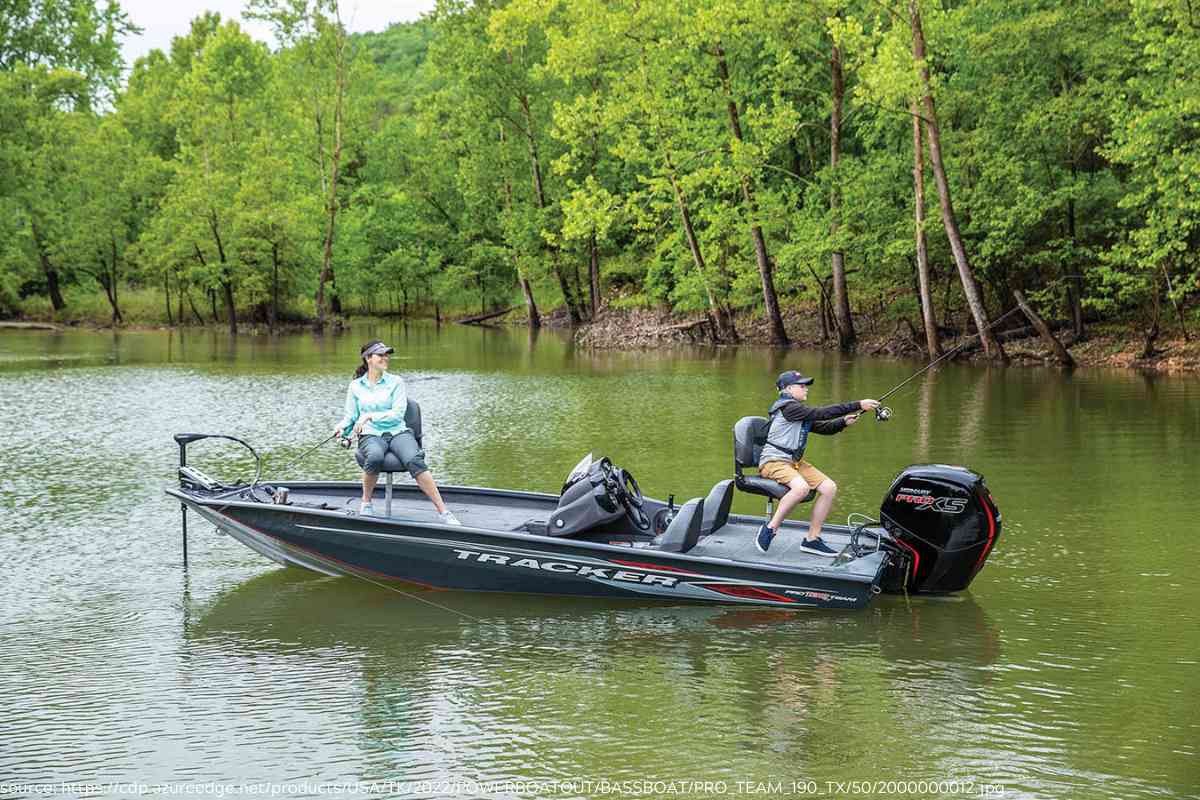
How much do fiberglass boats weigh?
Overall, the weight of a fiberglass boat can range from a few hundred pounds for a small, lightweight model to several thousand pounds for a larger, more heavy-duty vessel. By understanding the various factors that can impact the weight of a fiberglass boat, boaters can make more informed decisions when it comes to selecting the right vessel for their needs.
When it comes to determining the weight of a fiberglass boat, it’s important to consider both the weight of the boat itself as well as any additional weight from equipment, fuel, and passengers. For those who plan on towing their boat on a trailer, it’s also important to factor in the weight of the trailer and any other towing equipment.
What is a Fiberglass Boat?
A fiberglass boat is a type of watercraft that is made from fiberglass reinforced plastic (FRP). This material is a composite made of a plastic resin and glass fibers.
The fiberglass is layered and molded into the shape of the boat. The result is a strong, lightweight, and durable boat that is resistant to corrosion and rot.
Fiberglass boats are popular among boaters because they are relatively low-maintenance and easy to repair. They are also versatile and can be used for a variety of activities, such as fishing, cruising, and water sports.
When compared to other boat building materials, such as wood or aluminum, fiberglass is a relatively new material. It was first used in boat building in the 1940s and quickly gained popularity due to its strength, durability, and ease of maintenance.
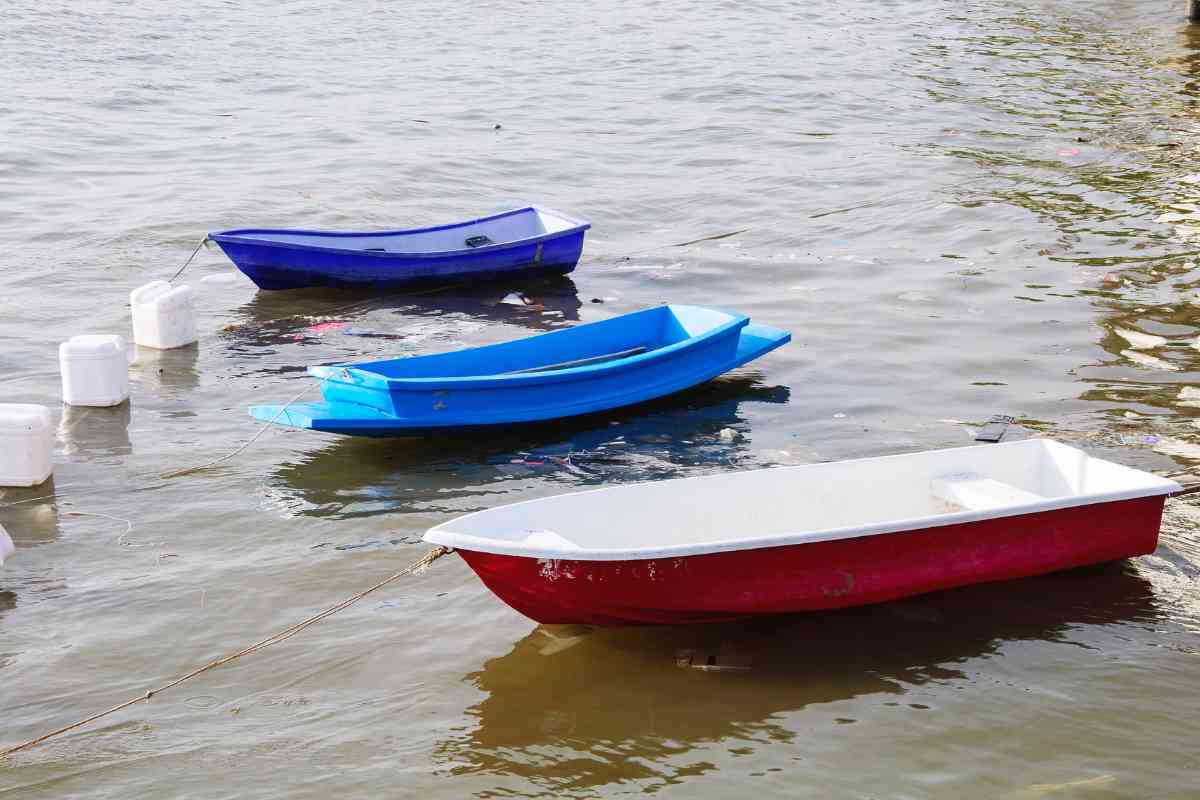
Why Does Weight Matter?
When it comes to boats, weight is an important factor to consider. There are several reasons why weight matters when it comes to boats:
- Performance: The weight of a boat can impact its performance on the water. A heavier boat may not be able to accelerate as quickly or maneuver as easily as a lighter boat.
- Fuel Efficiency: The weight of a boat can also impact its fuel efficiency. A heavier boat may require more fuel to move through the water than a lighter boat.
- Trailer Capacity: If you plan to trailer your boat, it’s important to consider the weight of the boat and trailer together. You’ll need a vehicle with a trailer capacity that can handle the weight of your boat and trailer.
- Safety: The weight of a boat can impact its stability and safety on the water. A boat that is too heavy may be more prone to capsizing or taking on water.
When discussing boat weight, there are a few different terms you may come across:
- Dry Weight: This is the weight of the boat without any fuel, water, or gear on board.
- Wet Weight: This is the weight of the boat with fuel, water, and gear on board.
- Trailer Weight: This is the weight of the boat and trailer together.
- Actual Boat Weight: This is the weight of the boat with everything on board, including fuel, water, and gear.
Understanding the weight of your boat is important when it comes to choosing the right boat for your needs, as well as ensuring you have the right vehicle to tow your boat if necessary. It’s also important to keep in mind that the weight of your boat can impact its overall performance and safety on the water.
Factors That Affect Fiberglass Boat Weight
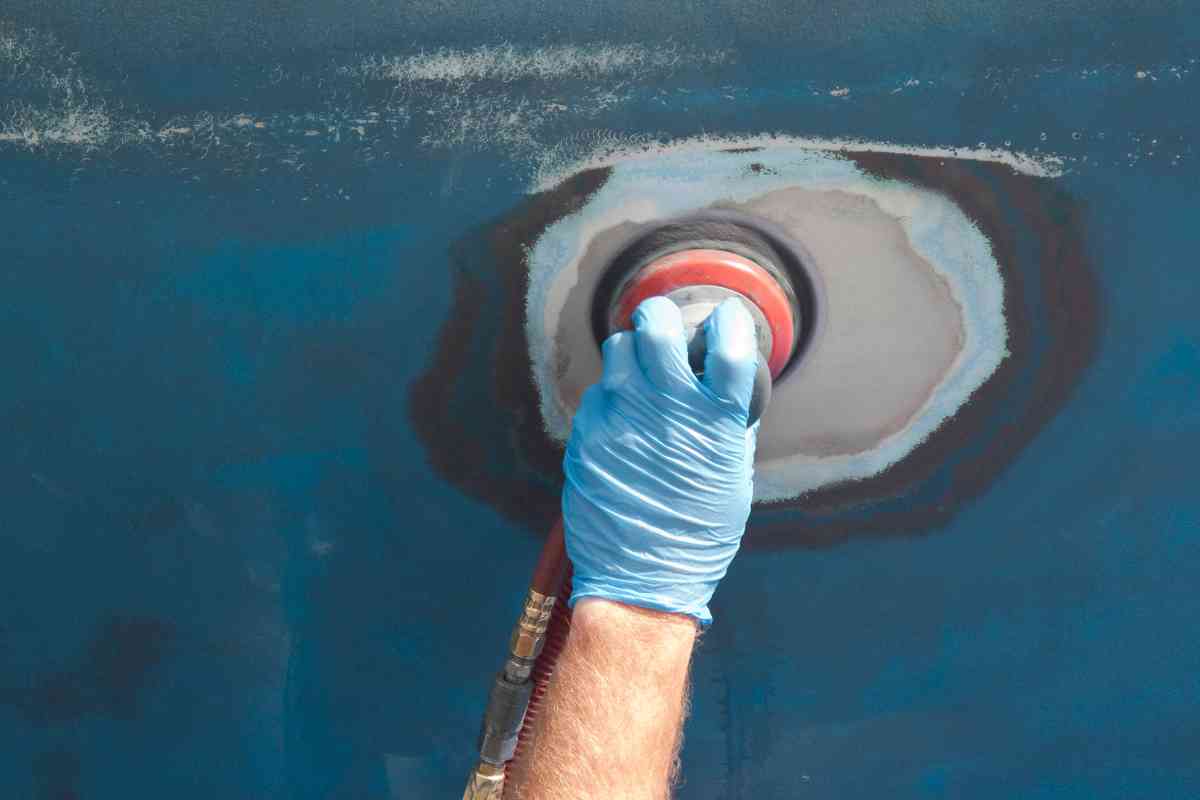
Boat Size
The size of a fiberglass boat is one of the most significant factors that affect its weight. Larger boats tend to be heavier than smaller boats due to the amount of material used in their construction.
For example, a 20-foot fiberglass boat will weigh less than a 30-foot fiberglass boat because the latter requires more material to build. The weight of a boat increases exponentially as its size increases.
Boat Model
The model of a fiberglass boat also affects its weight. Different models have different designs and features that can impact the weight of the boat.
For instance, a fishing boat will weigh less than a cabin cruiser because it has fewer amenities and a simpler design. Similarly, a high-performance speedboat will weigh less than a luxury yacht because it has a streamlined design and fewer features.
Equipment and Accessories
The equipment and accessories installed on a fiberglass boat can significantly impact its weight. The more gear and equipment a boat has, the heavier it will be.
For example, a boat with a full kitchen, bathroom, and sleeping quarters will weigh more than a boat with only a basic cabin. Additional equipment like fishing gear, water sports equipment, and electronic devices can also add to the overall weight of the boat.
Engine Type and Size
The type and size of the engine installed on a fiberglass boat can also affect its weight. A larger engine will weigh more than a smaller engine, and a diesel engine will weigh more than a gasoline engine.
For example, a boat with a twin-engine setup will weigh more than a boat with a single engine. A boat with an inboard engine will weigh more than a boat with an outboard engine.
Materials Used
The materials used in the construction of a fiberglass boat can also affect its weight. Boats made with heavier materials like steel or aluminum will weigh more than boats made with lighter materials like carbon fiber or Kevlar.
Fiberglass boats are typically lighter than boats made with other materials, but the weight can still vary depending on the type and quality of the fiberglass used.
Comparing Fiberglass Boats to Other Types of Boats
Aluminum Boats
Aluminum boats are a popular choice for recreational fishing and boating. They are lightweight and easy to tow behind an SUV or truck.
On average, an aluminum boat weighs around 400-500 pounds for a 12-foot boat and up to 2,000 pounds for a 20-foot boat. However, larger sizes can weigh up to 5,000 pounds.
Pontoon Boats
Pontoon boats are known for their stability and spaciousness. They are typically made of aluminum and can weigh anywhere from 1,500 to 5,000 pounds, depending on the size and features.
A 20-foot pontoon boat can weigh around 2,200 pounds, while a 30-foot pontoon boat can weigh up to 5,000 pounds.
Bass Boats
Bass boats are designed for fishing and are usually made of aluminum or fiberglass. They are lightweight and can be easily towed behind an SUV or truck.
The average weight of a bass boat is around 1,500 to 2,500 pounds, depending on the size and features.
Sailboats
Sailboats are popular for recreational sailing and racing. They can be made of various materials, including fiberglass, aluminum, and wood. The weight of a sailboat depends on its size and construction material.
A 17-foot sailboat can weigh around 500 pounds, while a 40-foot sailboat can weigh up to 20,000 pounds.
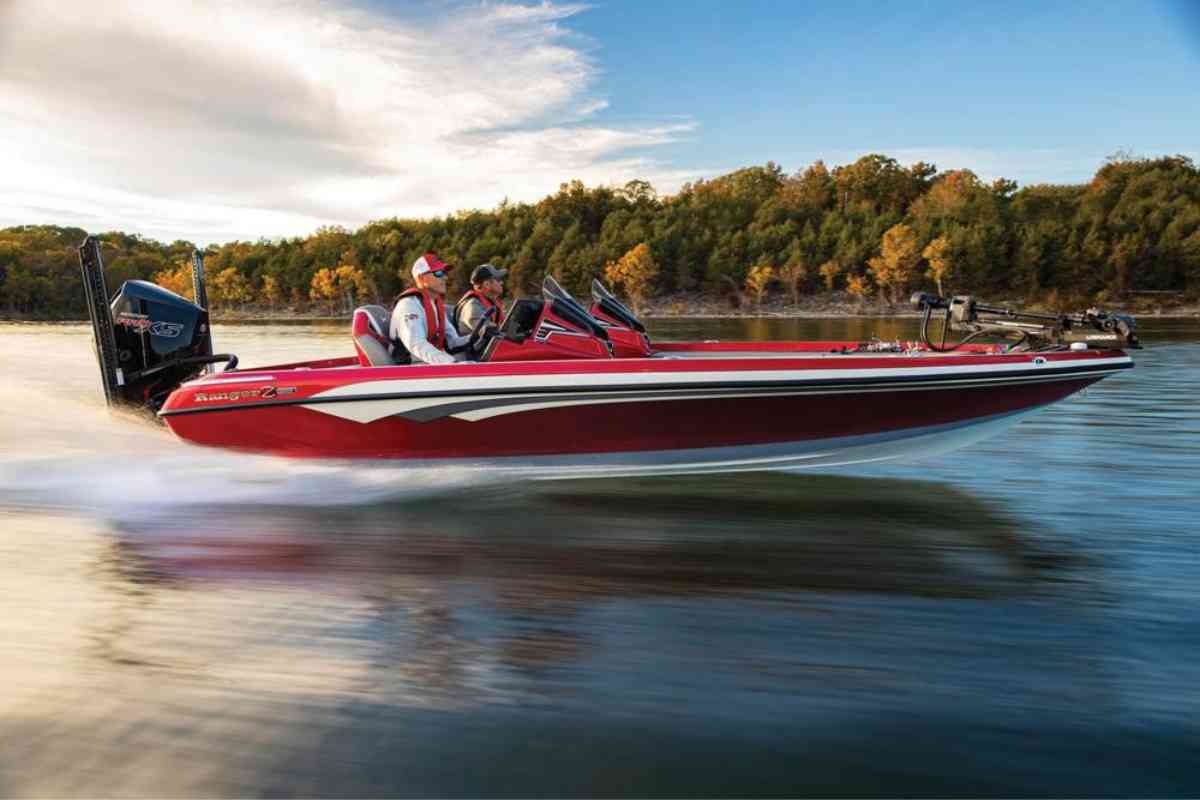
Cabin Cruisers
Cabin cruisers are designed for comfort and luxury. They are usually made of fiberglass and can weigh anywhere from 5,000 to 20,000 pounds, depending on the size and features.
A 30-foot cabin cruiser can weigh around 10,000 pounds, while a 40-foot cabin cruiser can weigh up to 20,000 pounds.
Ski Boats
Ski boats are designed for water sports, such as skiing and wakeboarding. They are usually made of fiberglass and can weigh anywhere from 2,500 to 5,000 pounds, depending on the size and features.
A 20-foot ski boat can weigh around 3,000 pounds, while a 24-foot ski boat can weigh up to 5,000 pounds.
Wake Boats
Wake boats are designed for wakeboarding and wake surfing. They are usually made of fiberglass and can weigh anywhere from 3,000 to 6,000 pounds, depending on the size and features.
A 20-foot wake boat can weigh around 3,500 pounds, while a 24-foot wake boat can weigh up to 6,000 pounds.
Catamarans
Catamarans are known for their stability and speed. They are usually made of fiberglass and can weigh anywhere from 1,500 to 20,000 pounds, depending on the size and features.
A 20-foot catamaran can weigh around 1,500 pounds, while a 40-foot catamaran can weigh up to 20,000 pounds.
Towing Fiberglass Boats

Towing Capacity of Vehicles
When towing a fiberglass boat, it’s important to make sure the vehicle being used has a sufficient towing capacity. The owner’s manual of the vehicle should list the maximum towing capacity.
It’s important to note that the towing capacity is not just determined by the power of the engine, but also by the vehicle’s suspension, brakes, and frame. Exceeding the towing capacity can be dangerous and cause damage to the vehicle.
Trailer Weight
The weight of the trailer is also an important factor to consider when towing a fiberglass boat. The weight of the trailer should be included in the calculation of the total weight being towed. It’s important to make sure the trailer weight is within the towing capacity of the vehicle being used.
Gross Trailer Weight
The gross trailer weight is the total weight of the trailer and everything being towed. This includes the weight of the fiberglass boat, any gear or equipment, and any fuel or water. It’s important to make sure the gross trailer weight is within the towing capacity of the vehicle being used.
When towing a fiberglass boat, it’s important to make sure the vehicle being used has sufficient towing capacity.
The weight of the trailer and the gross trailer weight should also be taken into consideration. By following these guidelines, towing a fiberglass boat can be done safely and efficiently.
Tips for Buying a Fiberglass Boat
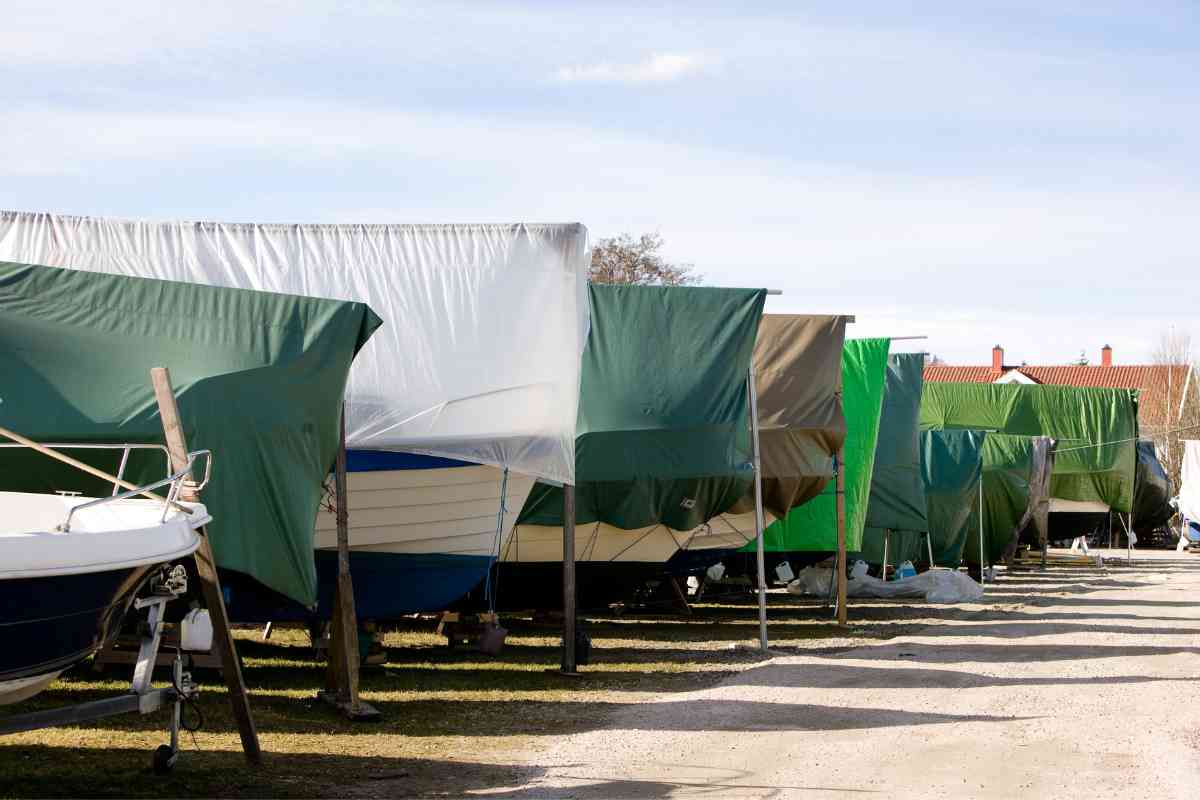
When it comes to buying a fiberglass boat, there are a few things to keep in mind to ensure you get the best boat for your needs.
Firstly, consider the size of the boat. The larger the boat, the heavier it will be, which can impact its fuel efficiency and maneuverability. Think about where you will be using the boat and what activities you will be doing, such as fishing or water sports, to determine the ideal size for your needs.
Secondly, consider the boat’s features. Does it come with a trailer? What type of engine does it have? What is the seating capacity? These are all important factors to consider when making your purchase.
Thirdly, inspect the boat thoroughly before buying. Look for any signs of damage, such as cracks or leaks, and make sure all of the boat’s components are in good working order.
Fourthly, consider the brand and reputation of the boat manufacturer. Do some research to see what other boaters are saying about the brand and whether they have had positive experiences with their boats.
Finally, don’t forget to consider your budget. Fiberglass boats can range in price from a few thousand dollars to hundreds of thousands of dollars, so it’s important to set a budget and stick to it.
Conclusion
When it comes to fiberglass boats, weight is an important factor to consider. The weight of a boat can affect its stability, speed, and fuel efficiency. It can also impact how easy it is to transport and launch the boat.
Based on the information gathered in this article, it’s clear that fiberglass boats can vary widely in weight. Factors such as design, size, and construction can all impact how much a boat weighs. For example, the Edgewater 170CC is a center console boat that weighs around 1,800 pounds, while other boats in the same size range may weigh more or less depending on their design and construction.
The depth of the hull, or resting draft, can also impact the weight of a boat. Deep-V hull designs tend to be heavier than other designs, but they offer better stability and a smoother ride in rough waters. Shallow water fishing boats, on the other hand, are designed to be lighter so they can navigate shallow waters more easily.
Live wells and trolling motors can also add weight to a boat, but they are important features for many anglers. When choosing a boat, it’s important to consider how much weight you’re willing to add for these features.
Overall, the weight of a fiberglass boat is an important consideration when choosing a boat. It’s important to find a balance between weight, stability, and features to ensure that you get the best boat for your needs.
